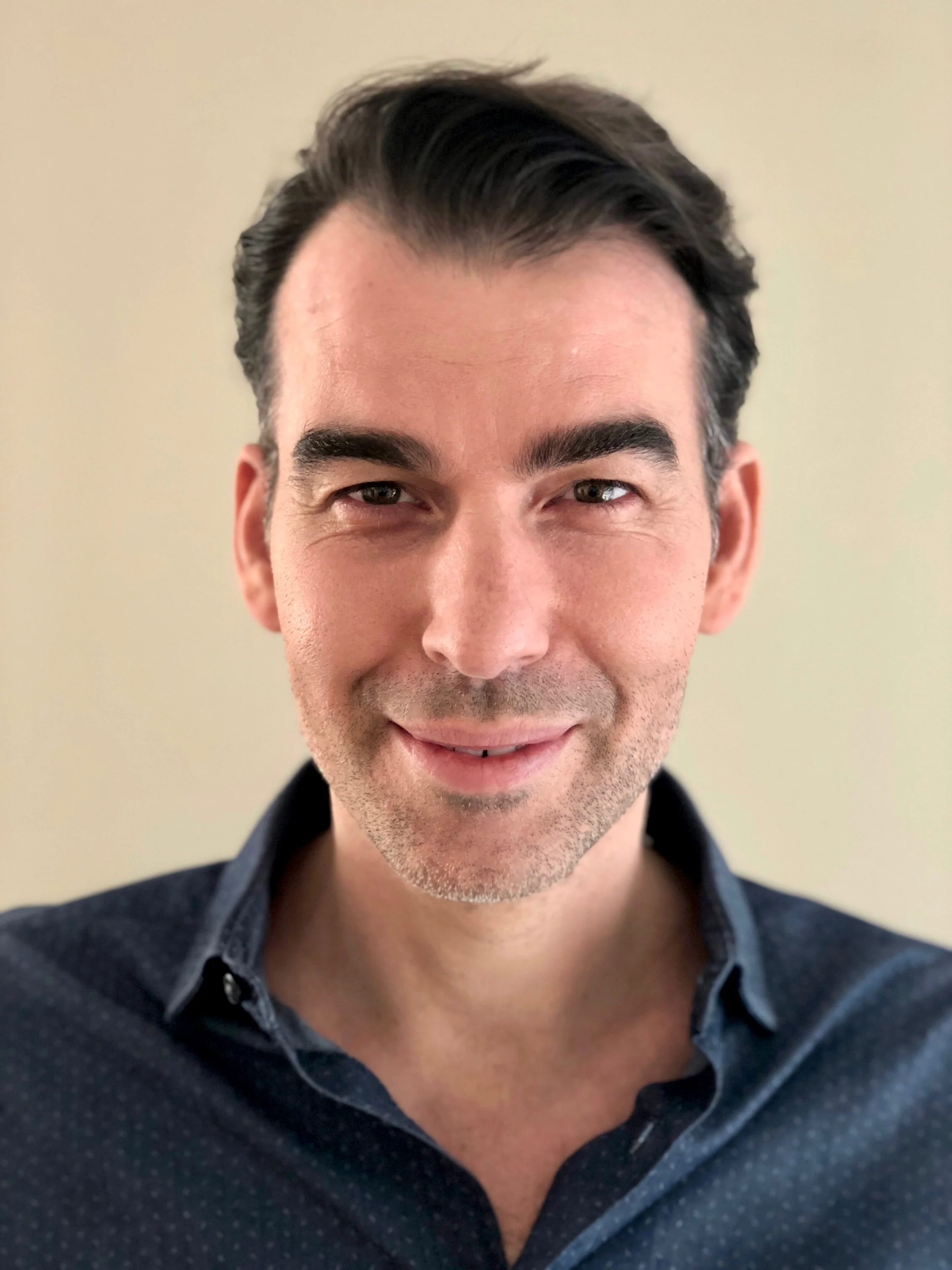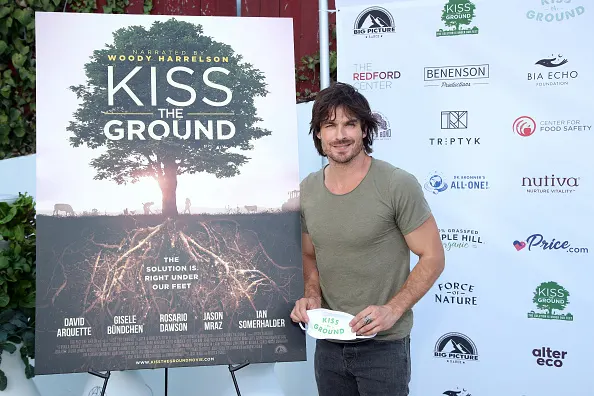
Ian Somerhalder talks dirt, bourbon, and 'Kiss the Ground' documentary with TWN
Netflix’s globally streaming documentary is stirring important conversations about the solution we’re all standing on: soil.
Ian Somerhalder, of The Vampire Diaries and Lost series fame, believes Netflix’s Kiss the Ground is the “single most important documentary ever.”
“This is a paint-by-numbers way of how to stop climate change,” says the actor turned executive producer for the film. It’s one that’s stirring conversation about a “new, old approach” to farming called regenerative agriculture. Kiss the Ground makes the point that the solution is right under our feet, and how we manage soil has “the potential to balance our climate, replenish our vast water supplies, and feed the world.”
Yet, it’s a film about dirt, a running joke for the cast and crew of the documentary. So Somerhalder and colleagues had to find a practical way to humanize the overarching narrative that concerns just how much conventional agriculture has transformed our world — for better or worse, but mostly the latter — and how soil regeneration by farmers might provide a viable way to abate consequences of a warming world.
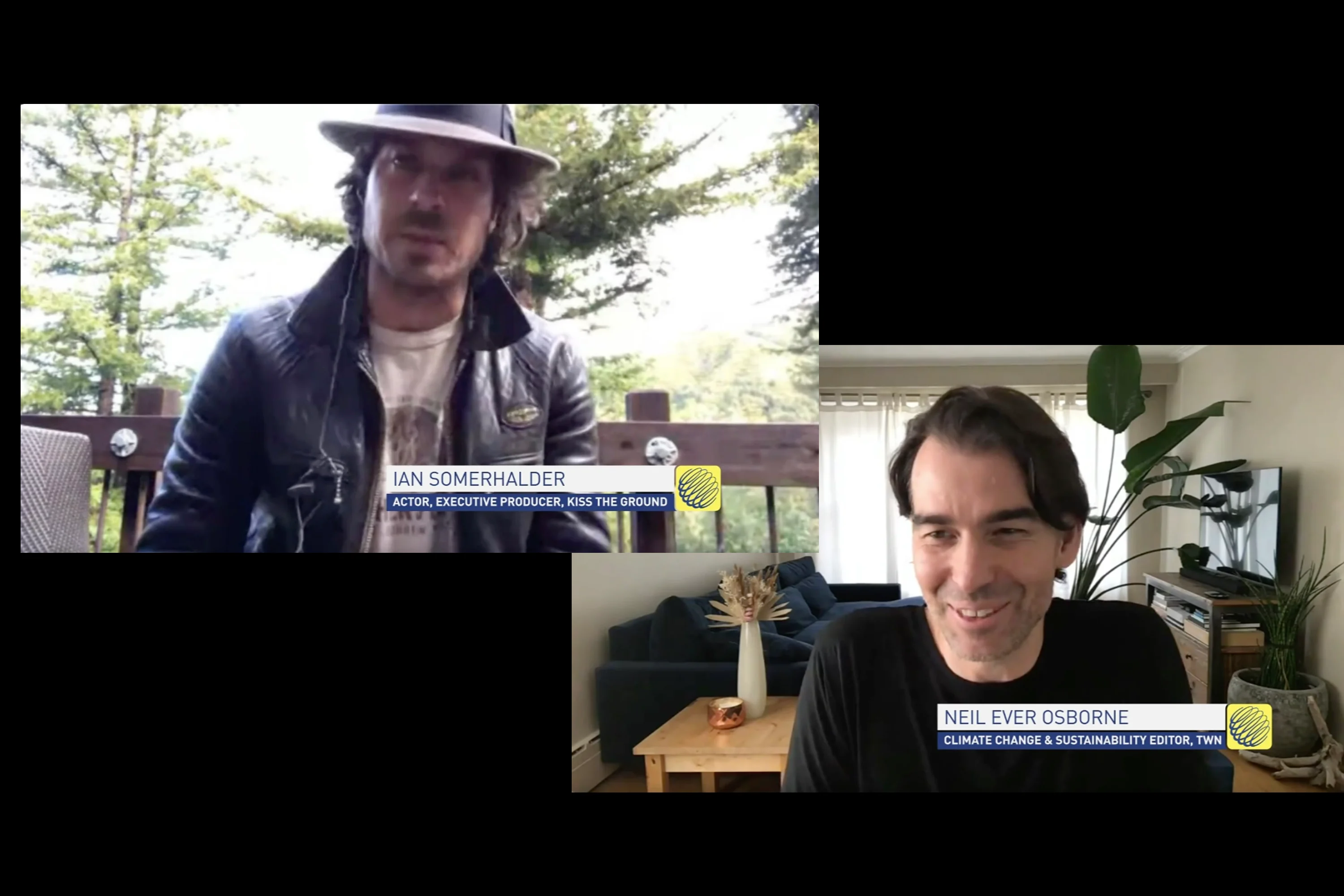
Ian Somerhalder, actor and executive producer of Kiss the Ground, sits down with Neil Ever Osborne, Climate Change and Sustainability Editor at The Weather Network, to discuss dirt, bourbon, and climate change.
According to the film’s narrator, Woody Harrelson, we’ve cut down too many trees and plowed and tilled our way towards the desertification of our planet’s surface. In other words, our soil has turned to dust. In a poignant line quoting a statistic from the United Nations, whose experts report the world’s remaining topsoil will be gone within 60 years, Harrelson says, “Unless we find a way to save our soils we have 60 harvests left.”
To explore this topic in particular, Somerhalder visited Zimbabwe, Africa to address the difference between desertification and regenerative agriculture. If the latter technique sounds complicated, it does not have to be. We are already doing this land improvement farming across the world, just not enough of it. Regenerative agriculture employs the use of best practices such as no tilling, no pesticides, and cover crops, as well as mob grazing that intermittently allows cattle to graze, thereby allowing the soil to heal during periods when the hooved animals feed in other pastures.
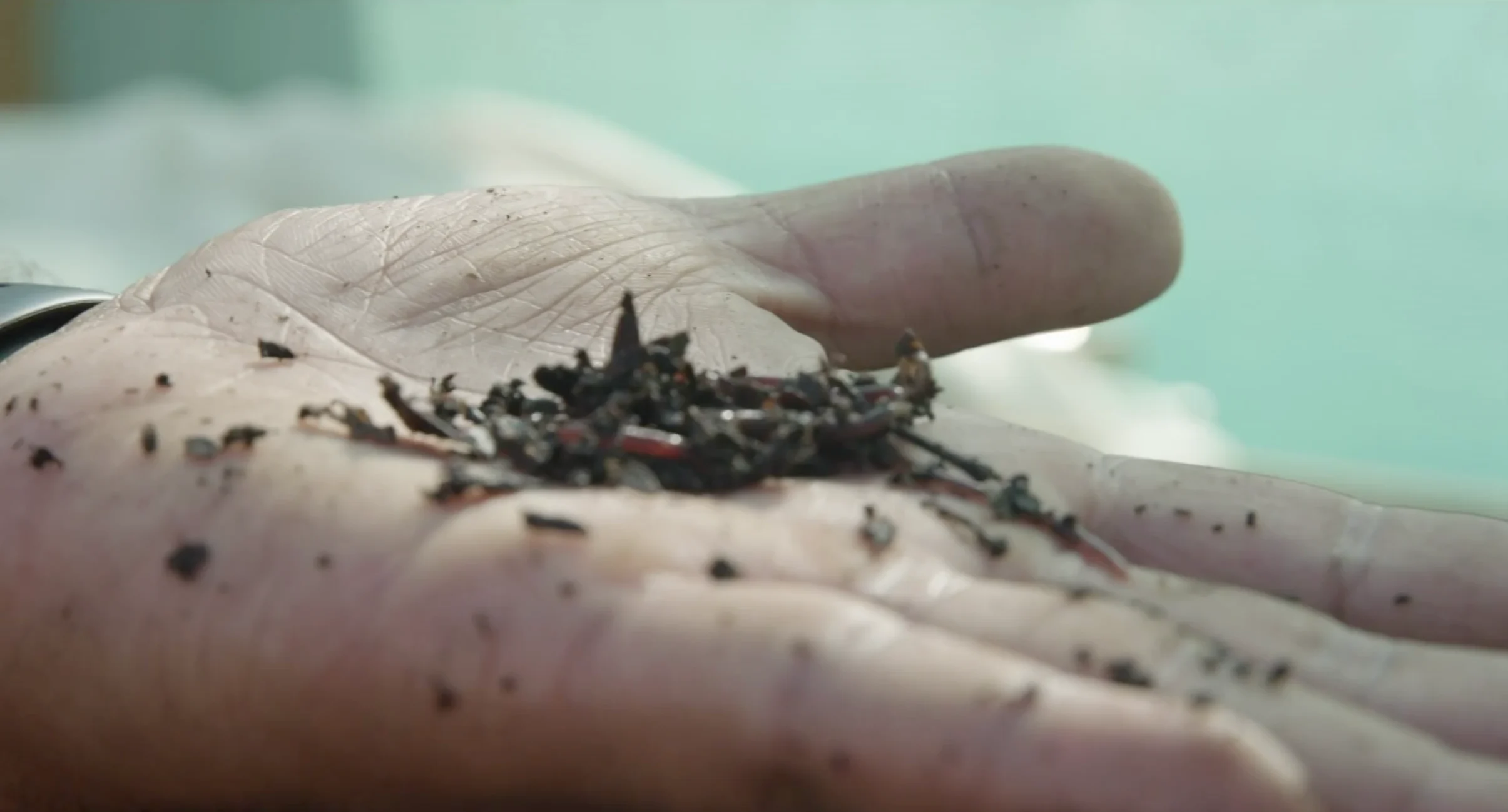
Healthy soil in hand. Credit: Kiss the Ground
Healing the soil is important because healthy soils absorb carbon dioxide. Damaged soils do the opposite and release this gas into the atmosphere, compounding the climate breakdown.
Gabe Brown, a farmer, rancher, and soil health pioneer from Bismack, North Dakota, suggests in the film that regenerative farming practices could be done “anywhere in the world.” He adds commentary of the nutritional value of healthy soils that contain microbes and organisms that enrich the earth — and us — versus dried-up dirt which is absent of these qualities. “Where do you want your food to come from?” he asks. “The answer is pretty simple to me.”
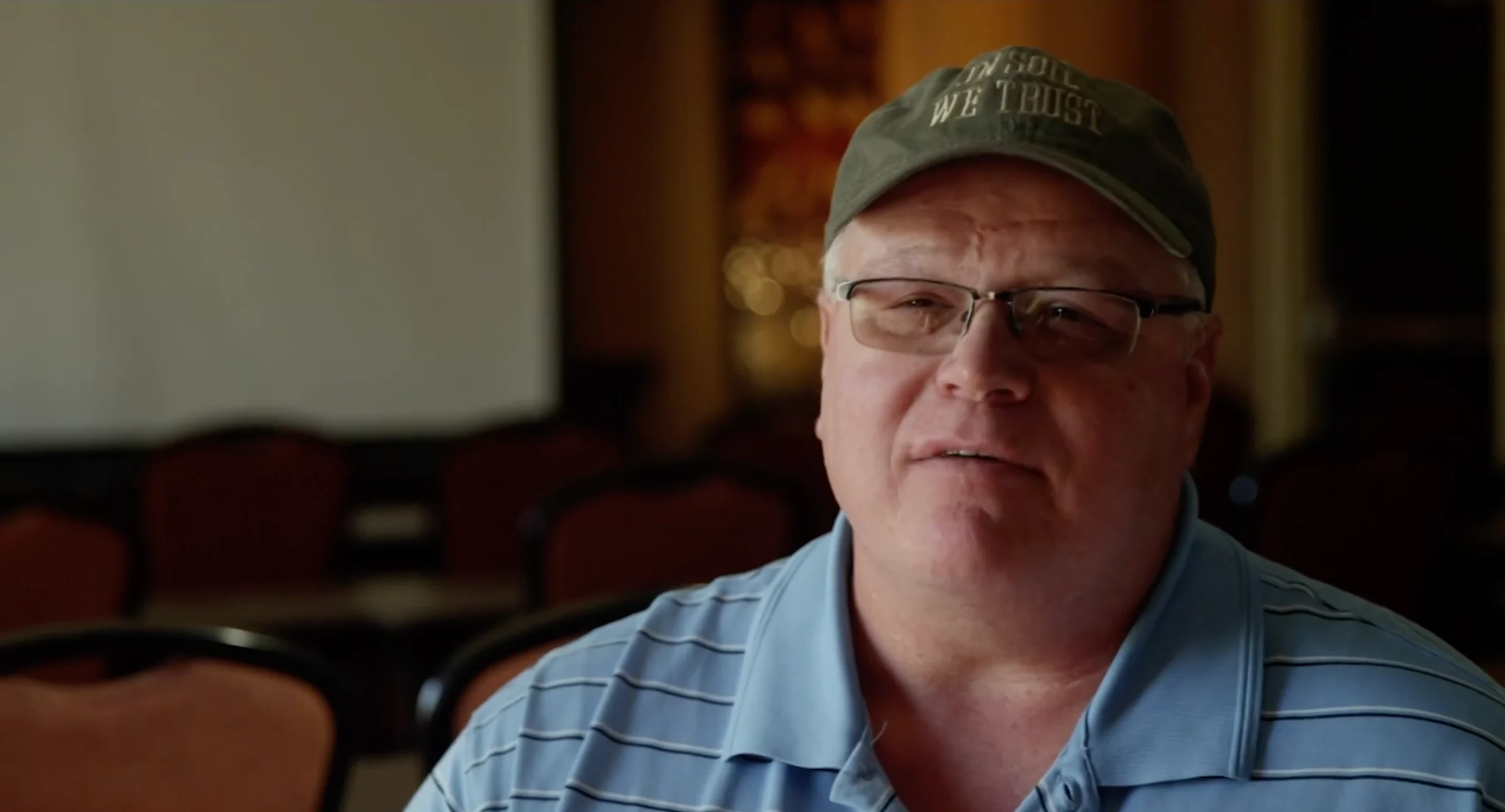
Gabe Brown, a farmer, a rancher, and soil health pioneer appears in the film to discuss regenerative agriculture best practices. Credit: Kiss the Ground
Somerhalder thinks of farmers like Brown as the critical workers addressing climate change. “It’s the farmers, believe it or not, who are actually going to pull us out of this,” he says.
American environmentalist Paul Hawken appears in Kiss the Ground briefly to clarify the significance of soil management as a climate change solution. Hawken notes we cannot achieve “drawdown,” the point in time when greenhouse gas concentrations in our atmosphere level off and begin to decline — a reversing effect of climate change — without biosequestration, a process that uses plants and trees, along with techniques of grazing and farming, to capture carbon and store it in the soil for decades, even centuries later. Somerhalder sums up regenerative agriculture like this: “This can be done at scale.”
It would seem Somerhalder was born into a keen understanding for the balance of nature; he learned early on that his home state of southeast Louisiana was susceptible to human-induced change just like everywhere else. Growing up he had access to the marshes and bayous, environments he thinks of as “widely delicate ecosystems,” and in these settings he noticed at an arm’s reach that “when you take more than you put back, there becomes an imbalance.”
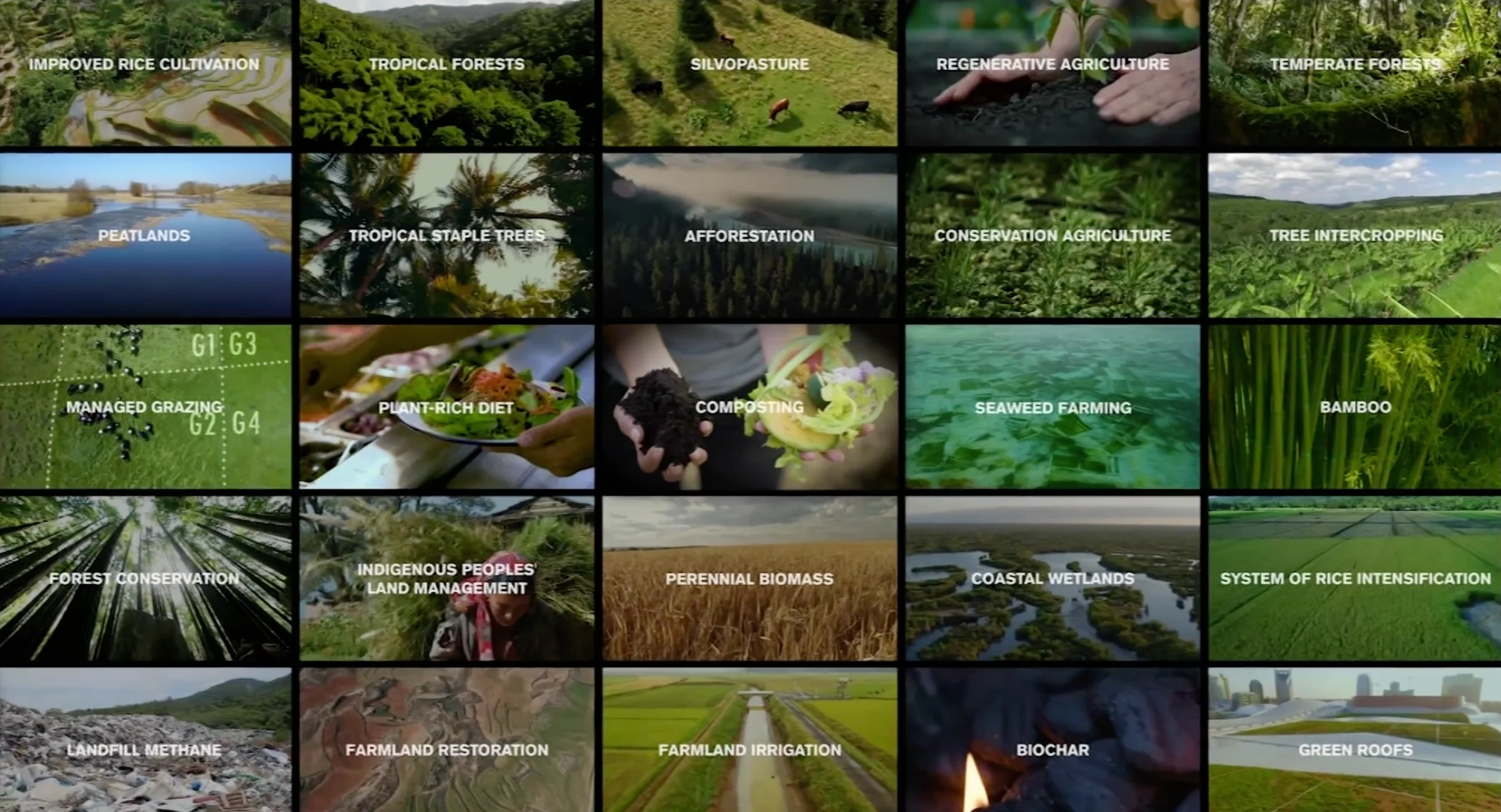
Kiss the Ground features a series of solutions to abate the climate crisis. Credit: Kiss the Ground
Somerhalder quotes “familial guidance” that constantly recognized, “it's all about the environment,” for his heightened stake in the natural surroundings that were part of his childhood.
But Somerhalder’s environmental sensibilities may have truly formalized in 2010, during the Deepwater Horizon oil spill. From the air, the crisis was apparent: Oil blanketed the water’s surface and mixed with corexit, an oil dispersant used during the clean-up, to create abstract images of the dire state of a polluted Gulf of Mexico. Pictures of oil-soaked pelicans were haunting too.
“It hit me like a brick,” says Somerhalder. “That incendiary, cosmic, awful event that shook us all.”

In his home state of southeast Louisiana Somerhalder grew up near “widely delicate ecosystems" like the one pictured here. Credit: Kiss the Ground
He recalls exactly where he was when he first heard the news of the spill. Having just wrapped filming The Vampire Diaries, Somerhalder was in a Whole Foods parking lot and remembers calling his dad and ordering a bunch of camera equipment with intent to “get as close to this Deepwater Horizon rig as we possibly can.”
All these years later, Kiss the Ground aims to immerse people at the forefront of the climate crisis, yet it does so in a promising way because the doom-and-gloom approach simply doesn't work anymore. Ultimately, this is a film about hope.
So how much impact can a film about dirt actually have?
Somerhalder is quick to point out that any attribution for the film’s resonance is to be credited to the directors Joshua Tickell and Rebecca Harrell Tickell and other environmental stewards that are recognized in Kiss the Ground, but he’s witnessed his own measure of the documentary’s success. “We’re moving mountains, and have released a 45-minute educational version to 30 million students around the world for free. We have thousands and thousands of farmers signing up for these courses. I mean, this is going to be the most amazing shift of agricultural control in this country.”
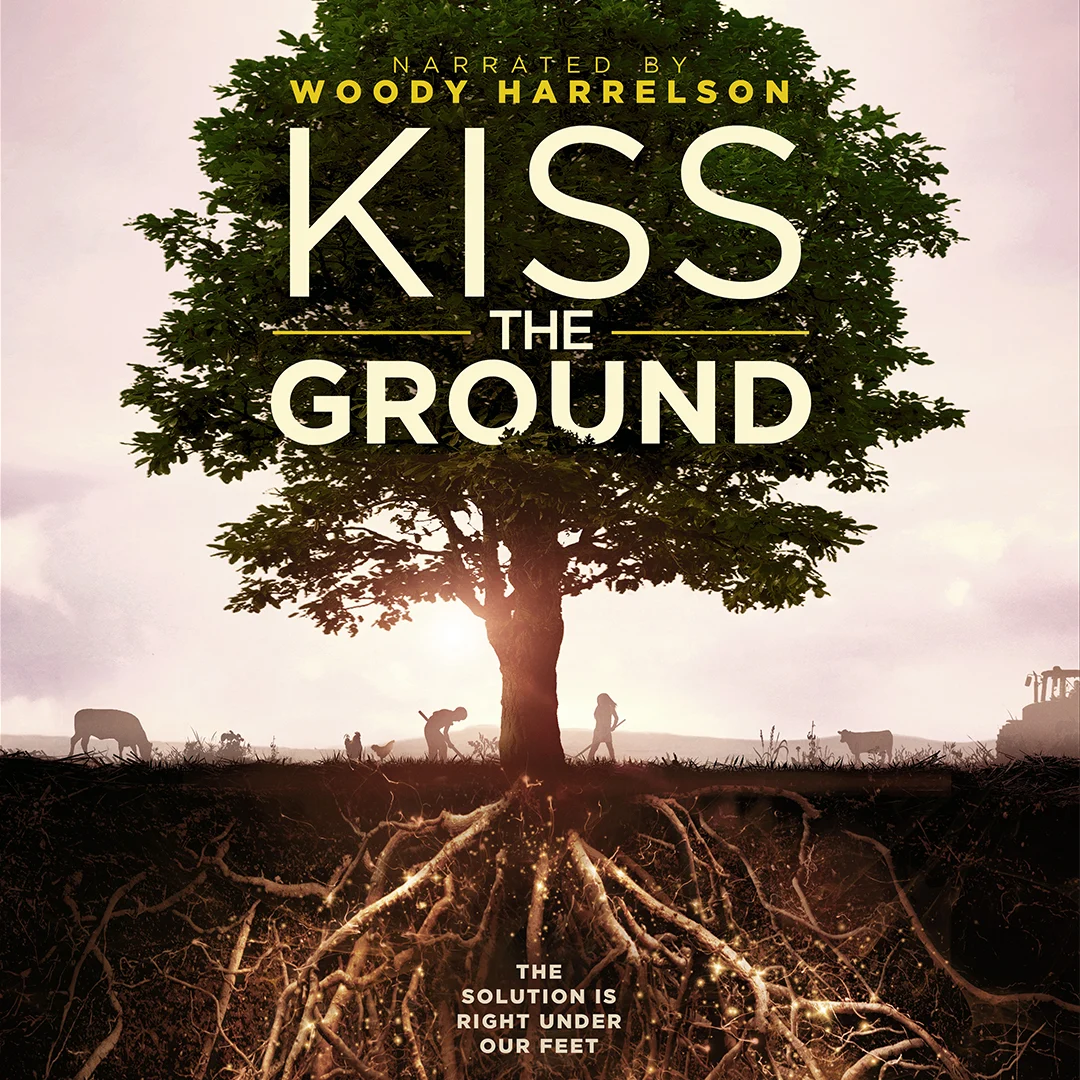
Film poster for Kiss the Ground now streaming on Netflix.
Assisting with the realization of the “passing of the baton” might be the film’s ultimate goal.
For Somerhalder, “new generations coming up in the ranks are going to be running our planet to lead us into an agricultural future that is so bright and so healthy, that is regeneration.”
Admittedly, he’s got a role to play as well.
After launching Brother’s Bond Bourbon, a ten-year project in the making with his Vampire Diaries co-star Paul Wesley, just a few weeks ago, Somerhalder got a firsthand account of sustainable agriculture since growing the main ingredients — corn, along with wheat, rye, and barley for flavour — had a footprint to be conscious of.
“This bourbon, like our show, is about bringing people together,” says Somerhalder, explaining that the process of making and sharing their product is mostly about community. But, even more importantly for the duo, is the fact that “every bottle of this bourbon that's sold, is giving back to regenerative agriculture to lift up those farmers, those people who are not only just feeding us, but who are in the frontlines of this climate disaster.”
Somerhalder’s Kiss the Ground documentary is now streaming on Netflix.
Thumbnail credit: Rich Fury/Getty Images
